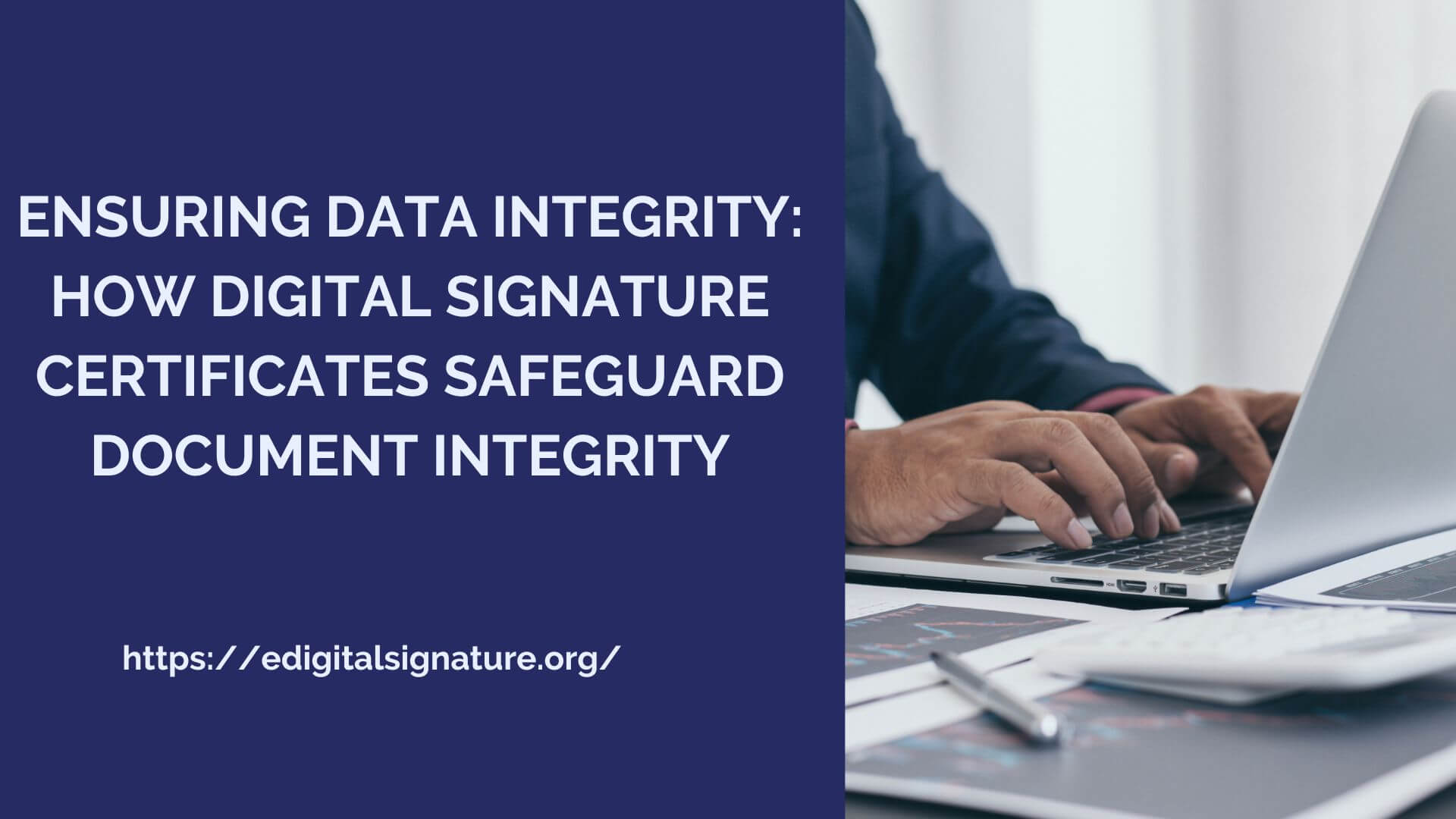Ensuring Data Integrity: How Digital Signature Certificates Safeguard Document Integrity

Introduction
In the digital age, where information flows seamlessly across the world, ensuring the integrity and authenticity of electronic documents has become paramount. With the rapid growth of online transactions, electronic communication, and digital documentation, the risk of data tampering, forgery, and unauthorized access has also increased. This is where Digital Signature Certificates (DSCs) play a pivotal role. In this article, we will delve into the world of DSCs and explore how they safeguard the integrity of electronic documents, ensuring the trustworthiness of online interactions.
Understanding Digital Signature Certificates
A Digital Signature Certificate is an electronic equivalent of a physical signature. It is a cryptographic method of proving the authenticity of a digital message or document. Much like a handwritten signature serves as a unique identifier of an individual, a digital signature serves as a unique identifier of a sender in the digital realm. It also ensures that the content of the message or document remains unaltered during transmission.
Cryptographic Foundations
At the heart of a Digital Signature Certificate lies cryptography, a science that deals with secure communication in the presence of third parties (adversaries). DSCs utilize asymmetric key cryptography, which involves a pair of keys: a private key and a public key. The private key is kept confidential by the signer, while the public key is openly available.
When a digital signature is created, the private key is used to generate a unique signature for the document. This signature is a complex mathematical representation of the document’s content. The recipient, using the signer’s public key, can verify the signature’s authenticity and ensure that the document has not been tampered with since the signature was generated.
Data Integrity through Digital Signatures
The primary purpose of a digital signature is to ensure the integrity of the data. A digital signature makes it nearly impossible for anyone to alter the content of a document without the alteration being detected. Even a minor change in the document’s content would result in a completely different signature. This cryptographic mechanism provides a strong deterrent against tampering, as any unauthorized modification would invalidate the signature.
Authentication and Non-Repudiation
Apart from data integrity, DSCs also provide authentication and non-repudiation. Authentication is the process of verifying the identity of the sender. By using their private key to sign a document, the sender proves that they are indeed the person they claim to be. Non-repudiation ensures that the sender cannot later deny having sent the document. This dual assurance of authentication and non-repudiation enhances the overall trustworthiness of electronic communications.
Legality and Regulatory Compliance
In many jurisdictions, digital signatures hold the same legal weight as handwritten signatures. This recognition is largely due to the use of advanced cryptographic techniques that make it extremely difficult to forge a digital signature. Many countries have enacted laws and regulations to define the use of digital signatures and the requirements for their validity. This legal framework further reinforces the importance of DSCs in safeguarding document integrity.
Use Cases
Digital Signature Certificates find applications in various sectors. In the business world, they are crucial for signing contracts, invoices, and other legally binding documents. Government agencies use DSCs for issuing official certificates, licenses, and permits electronically. The healthcare sector employs them for securely transmitting patient information. Online transactions, such as e-commerce and online banking, also heavily rely on DSCs to secure sensitive financial data.
Challenges and Future Trends
While DSCs are highly effective in ensuring data integrity, they are not immune to challenges. The security of the private key is of paramount importance, as its compromise would render the entire system vulnerable. As technology evolves, quantum computing poses a potential threat to current cryptographic methods, necessitating the development of quantum-resistant encryption techniques.
Suggested Read: Digital Signature Certificate for Income Tax
Conclusion
In a world where digital interactions have become the norm, maintaining the integrity of electronic documents is essential for establishing trust and security. Digital Signature Certificates serve as a crucial tool in achieving this goal. By leveraging the power of cryptography, these certificates enable us to authenticate, safeguard against tampering, and uphold the non-repudiation of digital documents. As technology continues to advance, the role of DSCs will likely expand, ensuring that the digital realm remains a safe and secure environment for communication and transactions.




